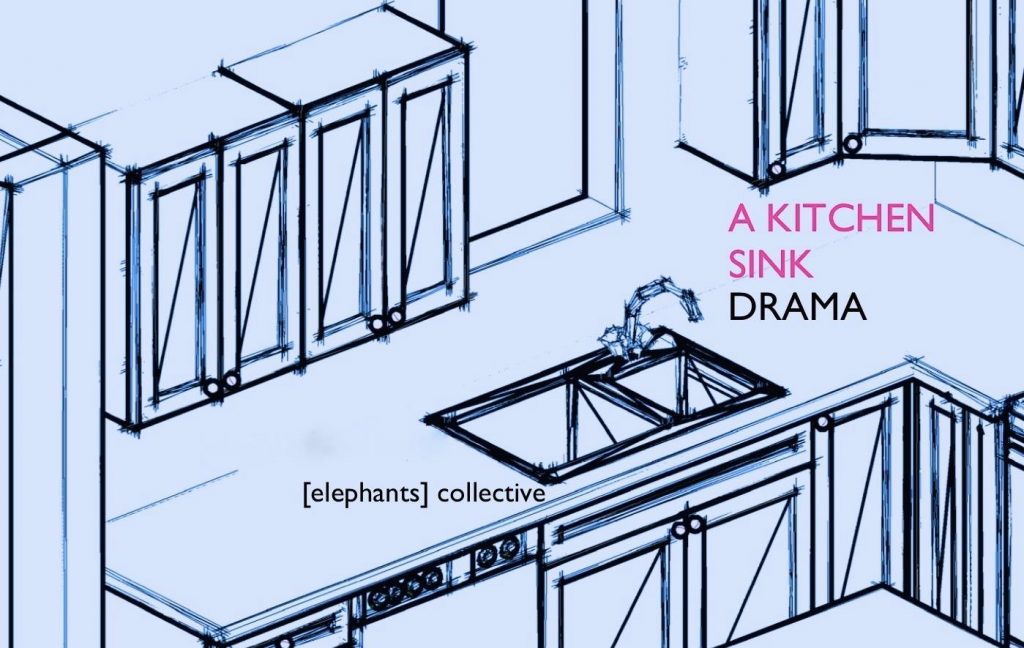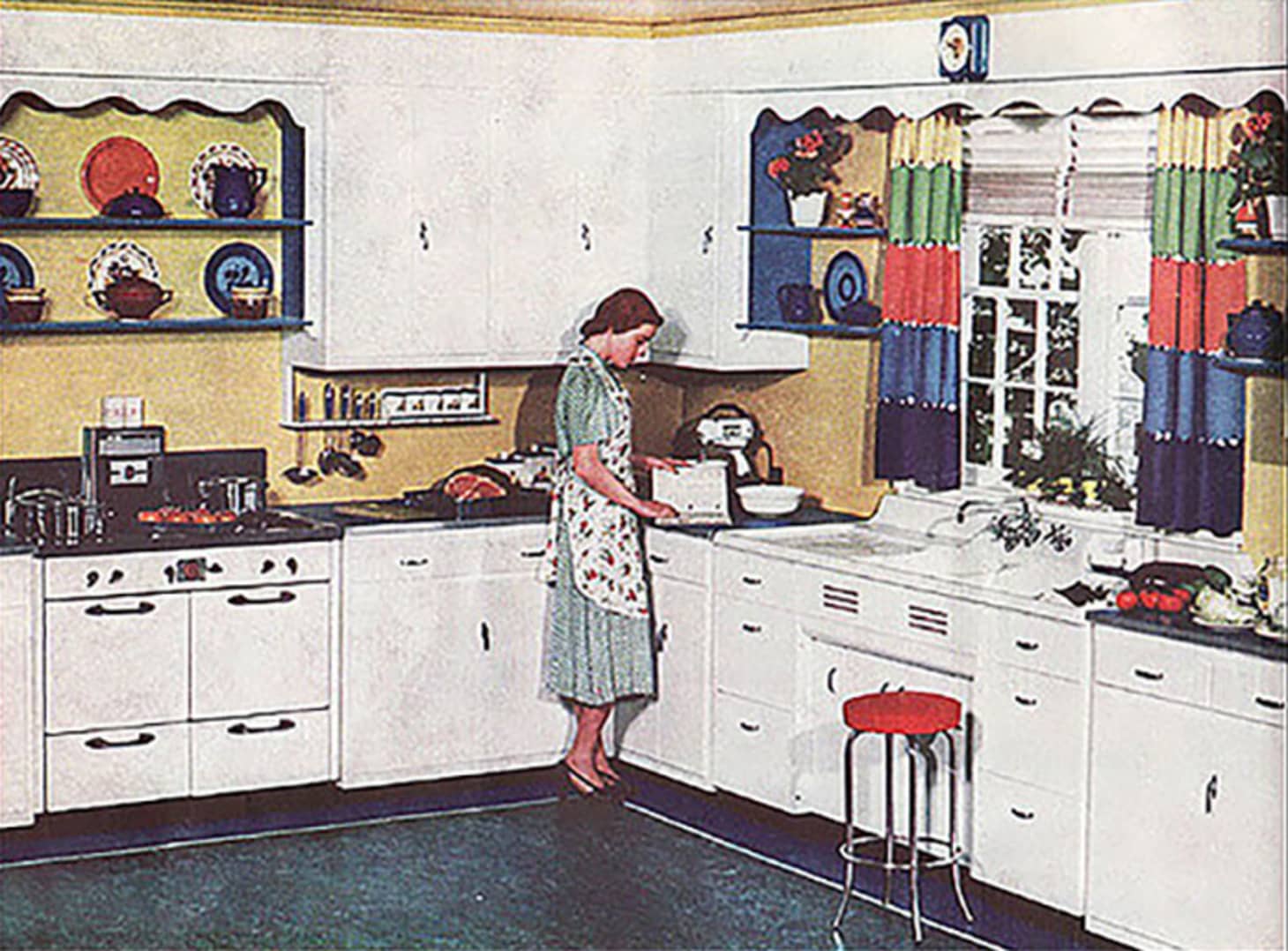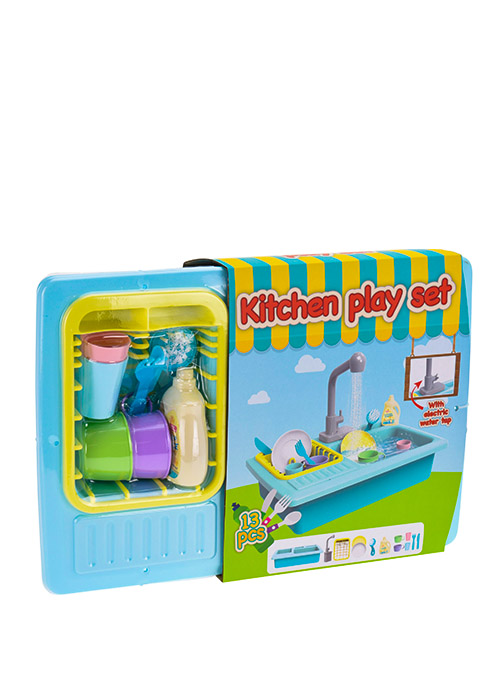The kitchen sink play is a type of drama that emerged in Britain in the 1950s and 1960s. It is characterized by its realistic portrayal of working-class life and its use of gritty, everyday settings and situations. The term "kitchen sink" refers to the inclusion of mundane, domestic elements in the play, such as a kitchen sink, to represent the struggles and complexities of everyday life.What is the meaning of the kitchen sink play?
The kitchen sink drama is a subgenre of realism, which emerged in response to the idealized and romanticized portrayals of middle-class life in traditional theatre. The kitchen sink play sought to challenge the traditional class and gender roles portrayed on stage and shed light on the struggles faced by the working class. It aimed to bring a sense of authenticity and relatability to the theatre, and its meaning lies in its ability to reflect the realities of everyday life.Exploring the Meaning of the Kitchen Sink Drama
The kitchen sink drama is characterized by its focus on the working class, its use of colloquial language, and its exploration of themes such as family dynamics, social inequality, and the struggles of everyday life. Some notable examples of kitchen sink plays include "Look Back in Anger" by John Osborne, "A Taste of Honey" by Shelagh Delaney, and "Saved" by Edward Bond.The Kitchen Sink Drama: Definition, Characteristics, and Examples
The kitchen sink drama movement emerged in post-World War II Britain and was heavily influenced by the social and political climate of the time. It was a response to the traditional, upper-class theatre that dominated the stage and aimed to give a voice to the marginalized working class. The movement gained popularity in the 1950s and 1960s and had a significant impact on the theatre scene in Britain and beyond.The Kitchen Sink Play: A Brief History and Overview
The kitchen sink drama movement was not just a theatrical trend but a cultural movement that sought to challenge societal norms and bring attention to the issues faced by the working class. Its aim was to break the barriers between high and low culture and make theatre more accessible and relevant to the masses. It also paved the way for other subgenres of realism and had a lasting impact on modern theatre.Understanding the Kitchen Sink Drama Movement
The kitchen sink play often explores themes such as family relationships, social class, gender roles, and the struggle to make ends meet. It uses everyday objects and settings, such as the kitchen sink, to represent the mundane and often overlooked aspects of life. The use of symbolism in the kitchen sink play adds depth and meaning to the everyday struggles portrayed on stage.The Kitchen Sink Play: Themes and Symbolism
The structure of the kitchen sink play is often nonlinear and episodic, reflecting the disjointed and chaotic nature of everyday life. It may also include flashbacks and dream sequences to provide a deeper understanding of the characters and their motivations. The use of colloquial language and naturalistic dialogue adds to the authenticity of the play and enhances its meaning.Breaking Down the Kitchen Sink Play Structure
The kitchen sink drama movement had a significant impact on modern theatre and paved the way for other forms of realism, such as social realism and kitchen sink cinema. It challenged the traditional notions of what theatre should be and opened the door for more diverse and inclusive voices to be heard on stage. The kitchen sink play also influenced the development of other theatrical movements, such as the angry young men and the feminist theatre movement.The Kitchen Sink Play: Impact on Modern Theatre
Like any other form of art, the kitchen sink play has been subject to analysis and criticism. Some argue that it perpetuates stereotypes and reinforces class divisions, while others praise its raw and honest portrayal of working-class life. Its use of colloquial language and its focus on domestic settings have also been topics of debate. However, the kitchen sink play continues to be studied, performed, and appreciated for its impact on modern theatre and its ability to reflect the realities of everyday life.Interpreting the Kitchen Sink Play: Analysis and Criticism
The kitchen sink play may have emerged in a specific time and place, but its themes and messages remain relevant in today's society. Issues such as social inequality, family dynamics, and the struggle to make ends meet are still prevalent, and the kitchen sink play continues to shed light on these issues and spark important conversations. Its meaning and impact have transcended time and continue to resonate with audiences across the globe.The Kitchen Sink Play: Relevance in Today's Society
The Meaning Behind Kitchen Sink Play in House Design

Understanding the Concept of Kitchen Sink Play
 When it comes to house design, there are many terms and concepts that may seem unfamiliar to the average homeowner. One of these terms is "kitchen sink play," which often leaves people wondering what it actually means. Before we delve into the meaning behind this term, let's first define it. Kitchen sink play refers to the design approach of incorporating multiple elements and features into a space, rather than sticking to a single style or theme. This can be seen in the kitchen, where various materials, colors, and textures are used to create a unique and eclectic look. But what exactly does this mean for your home and why is it gaining popularity?
When it comes to house design, there are many terms and concepts that may seem unfamiliar to the average homeowner. One of these terms is "kitchen sink play," which often leaves people wondering what it actually means. Before we delve into the meaning behind this term, let's first define it. Kitchen sink play refers to the design approach of incorporating multiple elements and features into a space, rather than sticking to a single style or theme. This can be seen in the kitchen, where various materials, colors, and textures are used to create a unique and eclectic look. But what exactly does this mean for your home and why is it gaining popularity?
The Purpose of Kitchen Sink Play
 The idea behind kitchen sink play is to create a space that is not only functional but also visually interesting and dynamic. By incorporating different elements, such as materials, colors, and textures, into a space, you can add depth and character to your home. This approach allows you to showcase your personal style and creativity, rather than conforming to a specific design trend. It also allows for more flexibility in the design process, as there are no strict rules or guidelines to follow.
The idea behind kitchen sink play is to create a space that is not only functional but also visually interesting and dynamic. By incorporating different elements, such as materials, colors, and textures, into a space, you can add depth and character to your home. This approach allows you to showcase your personal style and creativity, rather than conforming to a specific design trend. It also allows for more flexibility in the design process, as there are no strict rules or guidelines to follow.
The Benefits of Kitchen Sink Play
 One of the main benefits of kitchen sink play is the ability to create a truly unique and personalized space. With this approach, you can mix and match different elements to create a design that reflects your personality and taste. It also allows for a more eclectic and diverse look, breaking away from the traditional, cookie-cutter designs. Additionally, kitchen sink play can add a sense of warmth and coziness to a space, making it feel more inviting and lived-in.
One of the main benefits of kitchen sink play is the ability to create a truly unique and personalized space. With this approach, you can mix and match different elements to create a design that reflects your personality and taste. It also allows for a more eclectic and diverse look, breaking away from the traditional, cookie-cutter designs. Additionally, kitchen sink play can add a sense of warmth and coziness to a space, making it feel more inviting and lived-in.
How to Incorporate Kitchen Sink Play in Your Home
 If you're interested in incorporating kitchen sink play into your home design, there are a few things to keep in mind. First, it's important to have a cohesive color palette to tie all the different elements together. This will prevent the space from looking chaotic or overwhelming. You can also play with different textures, such as mixing wood and metal in your kitchen design. Don't be afraid to mix and match styles as well, such as combining modern and rustic elements. The key is to find a balance between all the different elements to create a harmonious and visually appealing space.
In conclusion, kitchen sink play is a design approach that embraces variety and creativity. It allows you to break away from traditional design norms and create a space that is truly unique and reflective of your personal style. By incorporating different elements and styles, you can add depth, character, and warmth to your home. So don't be afraid to mix things up and have fun with your house design – after all, that's what kitchen sink play is all about.
If you're interested in incorporating kitchen sink play into your home design, there are a few things to keep in mind. First, it's important to have a cohesive color palette to tie all the different elements together. This will prevent the space from looking chaotic or overwhelming. You can also play with different textures, such as mixing wood and metal in your kitchen design. Don't be afraid to mix and match styles as well, such as combining modern and rustic elements. The key is to find a balance between all the different elements to create a harmonious and visually appealing space.
In conclusion, kitchen sink play is a design approach that embraces variety and creativity. It allows you to break away from traditional design norms and create a space that is truly unique and reflective of your personal style. By incorporating different elements and styles, you can add depth, character, and warmth to your home. So don't be afraid to mix things up and have fun with your house design – after all, that's what kitchen sink play is all about.



































































































